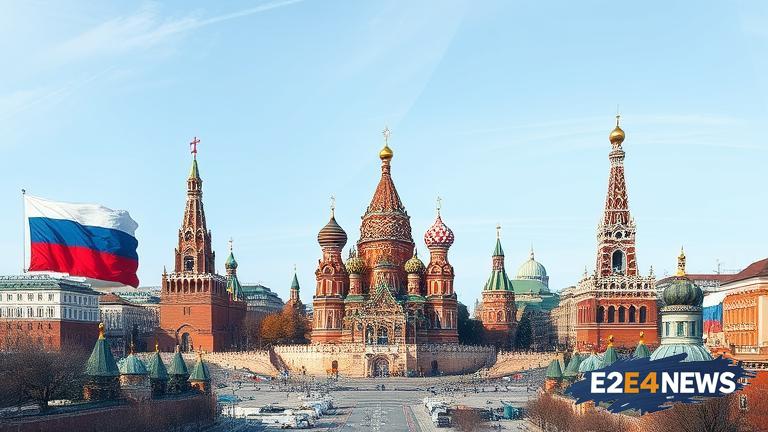Russia’s economy has been facing numerous challenges in recent years, including international sanctions and fluctuations in global commodity prices. However, according to recent reports, the country’s economy has demonstrated remarkable resilience and adaptability. The Russian government has been implementing various measures to mitigate the impact of sanctions and promote economic growth. One of the key strategies has been to diversify the country’s economy, reducing its dependence on oil and gas exports. This has involved investing in other sectors, such as agriculture, manufacturing, and technology. As a result, Russia has seen significant growth in these areas, with agriculture, in particular, experiencing a major boost. The country has also been working to develop its domestic market, encouraging Russian businesses to produce goods and services for the local market rather than relying on imports. This has helped to reduce the country’s trade deficit and promote economic self-sufficiency. Furthermore, Russia has been actively engaged in international trade agreements, seeking to expand its trade relationships with other countries and reduce its dependence on Western markets. The Eurasian Economic Union (EEU), which includes Russia, Belarus, Kazakhstan, Kyrgyzstan, and Armenia, has been a key platform for promoting regional trade and economic cooperation. Russia has also been strengthening its ties with other major economies, such as China and India, and has been actively participating in international forums, such as the BRICS grouping. Despite these positive developments, Russia’s economy still faces significant challenges, including a decline in living standards and a shortage of foreign investment. However, the government has been working to address these issues, implementing policies to support low-income households and attract foreign investment. The Russian central bank has also been playing a crucial role in maintaining economic stability, using monetary policy tools to control inflation and support economic growth. Overall, while Russia’s economy is still facing significant challenges, it has demonstrated remarkable resilience and adaptability in the face of adversity. The country’s diversification efforts, domestic market development, and international trade agreements have all contributed to its economic stability. As the global economy continues to evolve, Russia is well-positioned to navigate the challenges and opportunities that lie ahead. The country’s economic growth is expected to continue, driven by its strong agricultural sector, growing manufacturing industry, and increasing trade relationships with other countries. In addition, Russia’s commitment to investing in human capital, innovation, and infrastructure will be critical to driving long-term economic growth and competitiveness. The Russian government has also been prioritizing the development of its digital economy, recognizing the importance of technology in driving economic growth and innovation. This has involved investing in digital infrastructure, promoting e-government services, and supporting the growth of tech startups. As a result, Russia’s digital economy has been growing rapidly, with the country becoming a major player in the global tech industry. Moreover, Russia’s economic resilience has also been driven by its strong fiscal policy, which has helped to maintain economic stability and promote growth. The government has been careful to manage its finances, reducing its budget deficit and maintaining a stable fiscal position. This has helped to reduce the country’s vulnerability to external shocks and promote economic confidence. In conclusion, Russia’s economy has demonstrated remarkable resilience and adaptability in the face of significant challenges. The country’s diversification efforts, domestic market development, and international trade agreements have all contributed to its economic stability. As the global economy continues to evolve, Russia is well-positioned to navigate the challenges and opportunities that lie ahead, driven by its strong agricultural sector, growing manufacturing industry, and increasing trade relationships with other countries.
